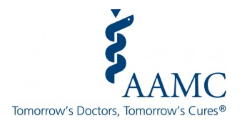In September, in the face of an unwavering opioid crisis, Governor Charlie Baker called on Massachusetts’ four medical schools to help the state find solutions to the epidemic. Just a few months later, the institutions are rising to the challenge.
“It was clear that each school brought particular expertise to this aspect of the curriculum, but no school’s program encompassed all of the essential elements,” says Scott Epstein, dean for educational affairs at Tufts University School of Medicine (TUSM). “The working group process has allowed us to share best practices.”
At the meeting in September, the four schools—Boston University School of Medicine (BUSM), Harvard Medical School (HMS), UMass Chan Medical School (UMass Chan), and TUSM—collaborated to create 10 “core competencies” related to safely prescribing and handling opioid painkillers. In the months since the meeting, all four of the schools have used those principles to create tangible changes in curriculum.
But Todd Griswold, director of medical student education in psychiatry at HMS, says the efforts go beyond classroom learning.
“More important than the information are the meta-messages,” he says. “The teaching and communication about values, that addiction treatment is a high priority value, that the prescription drug misuse problem is a high priority public health issue, working to combat stigma and correct misconceptions.”
UMass Chan Chancellor Michael Collins says such adaptations are the only way future doctors will ever be equipped to manage—and eventually quell—the crisis.
“If it’s not tackled at the med school level, then it never gets tackled, and all of a sudden you’re in practice and you’re getting all these challenges in front of you,” Collins says. “It’s very important that we teach this.”
Here’s how they’re doing it:
BUSM: The school has incorporated addiction into its entire curriculum, including courses about the biology of addiction, treatment strategies, and live-action simulations of substance abuse and overdose. All fourth-year students are also required to complete BUSM’s SCOPE of Pain program, which helps educate students about how to safely manage patients pain, including proper prescription of opioid pain medication.
HMS: HMS is emphasizing the core competencies in teaching, adding a new class that covers neuroscience, psychiatry, and human development, and revamping the second-year Introduction to Psychiatry course to better address the problem. Hands-on, case-oriented experiences will also be added to the curriculum.
UMass Chan: Effective this academic year, UMass Chan is bringing principles from the core competencies into its curriculum, including hands-on work with simulated patient interactions. The school will use “standardized patients”—actors who portray patients as accurately as possible, unexpected questions and unsavory symptoms included—to help students practice difficult patient relation skills, as well as skills related to the core competencies. The school is focusing on patient communication, safe prescription habits, use of Narcan, and accurate drug use screening, with an end goal of making sure all graduates are “sound prescribers.”
TUSM: TUSM has required first-year students to take an addiction medicine course for decades, but, following unanimous approval of the core competencies from its Curriculum Committee, it’s ramping up its efforts to fit current need. Starting in May 2016, all required third-ye

![Medical Schools Address Opioid Epidemic Through Innovations in Curricula and Other Methods, Capitol Hill Briefing Shows]()